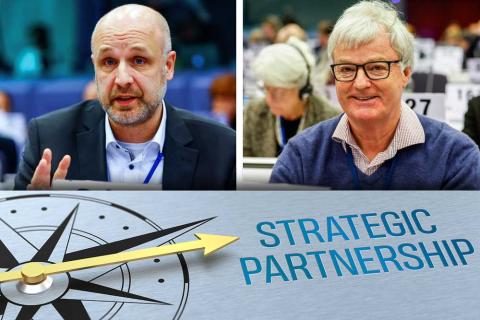European Economic
and Social Committee
At its January plenary session, the EESC debated the EU's "Strategic Compass" vision for security and defence, arguing that security should be understood broadly, far beyond military defence. Civil society should not be a bystander in security issues: in times of crisis, it can have a stabilising role, as proven by the war in Ukraine.
In an own-initiative opinion on The EU Strategic Compass (SC) the EESC expressed the need for a broader definition, as the present concept of security in the EU is too narrow. "Security goes beyond mere military defence. In times of complex, hybrid threats, the concept of security should be expanded to also include aspects of energy, transport, digital, water and food security, citizens' security, and foreign interference," said Christian Moos, rapporteur for the EESC opinion.
The opinion argues that, in parallel with national capability, defence planning and joint procurement, the EU should continue to invest its limited resources primarily in civilian policies and mechanisms in order to enable conflict prevention. This is where civil society can make a difference, through its social and economic networks, together with its strong potential for public and cultural diplomacy.
The return of war to Europe with Russia's aggression against Ukraine has been a "wake-up call" for the EU's relationship with NATO.
"The EU and NATO have not fully explored the potential of their cooperation yet. Strengthening the European pillar of security and defence means strengthening NATO. When we are talking about boosting the EU's defence capabilities, it is not to compete with NATO but to complement it," said the rapporteur and EESC member Peter Clever. (mt)
